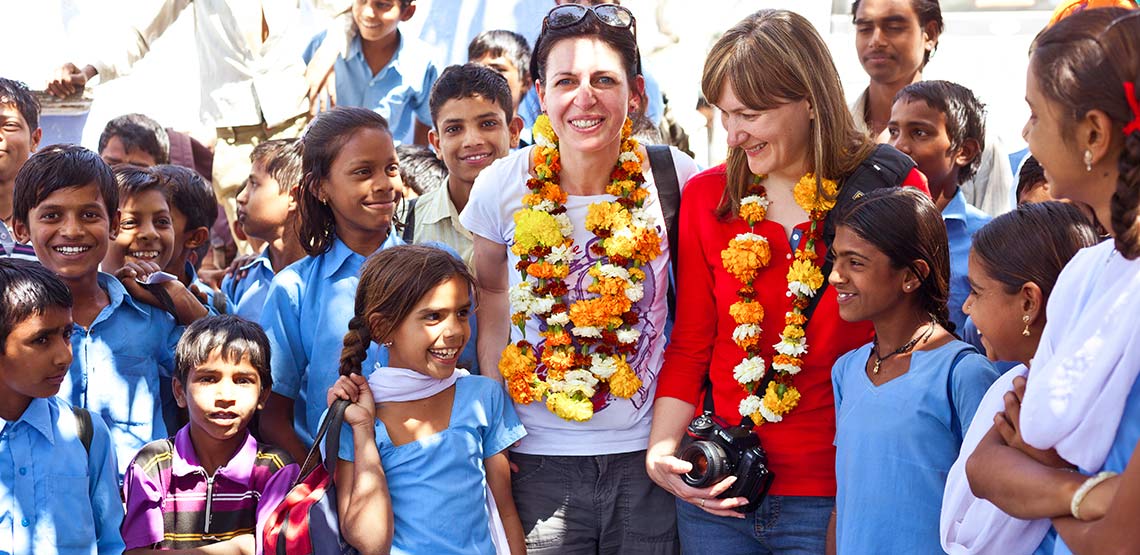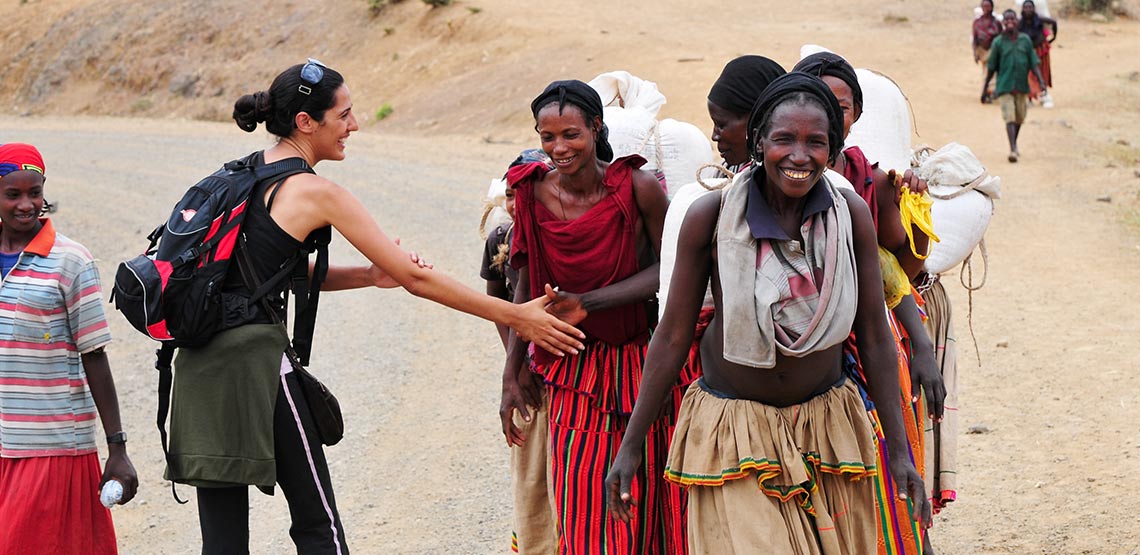Giving Back While You Travel: How Can You Partake in Voluntourism Responsibly?
Separate out the Good From the Bad and the Ugly
Traveling to a developing country and encountering poverty can be a confronting experience. Naturally, a lot of travelers want to do something about what they see. Instead of just walking away with incredible holiday memories, they want to give something back. This altruistic desire leads many a tourist down the path of volunteer tourism, often referred to as voluntourism.
However, although usually driven by noble motivations, the ethics and impact of voluntourism are increasingly being called into question. Let’s take a closer look at the problems with voluntourism and how you can volunteer abroad responsibly.
What is Voluntourism?
Voluntourism is the word commonly applied to short-term, paid volunteer programs that cater to tourists who wish to spend some time volunteering while they travel. Projects range from education to health to animal welfare.
Voluntourism has surged in popularity in the last few decades, with organizations now offering the volunteer experience in most developing countries around the globe. With more and more people taking part, there is a great debate around voluntourism and whether or not it is a beneficial practice for host countries.
How Ethical is Voluntourism?
Voluntourism at its best can demonstrate the potential for tourism to improve host countries socially, environmentally and economically. At its worst, it can have the opposite effect.
Critics of voluntourism argue that it has a paternalistic model and encourages “white savior mentality” — privileged, wealthy visitors believing that with their “superior” education and experiences they can “help” a community in need, even if they only stay for a short time.
This perspective is based on the fact that often people participating in these programs have no specific skills and wish to volunteer for the experience, rather than to achieve any specific development goals.
There have also been reports of organizations capitalizing on volunteers for profit, rather than setting up programs that have a positive impact on local communities. For example, fake orphanages started cropping up in Cambodia in recent years as profit-making schemes. These bogus orphanages dupe tourists into donating money or paying high fees to volunteer, when in fact the children have families and are essentially used as tourist props.
However, there are many potential benefits to volunteering abroad. The money you pay to be a part of the program can be invested in the local community, visitors can gain an appreciation for different cultures and improve cross-cultural communication, and with the right skills volunteers can contribute toward development goals.
How Can You Take Part in Voluntourism Responsibly?
Despite the negative press, it is possible to combine volunteering and tourism responsibly. Here’s how to be a good voluntourist:
- First, do your research. Investigate the organization you plan on volunteering with and read independent reviews from other travelers. Investigate their website thoroughly and look for evidence that they are working toward sustainable development goals.
- Approach any volunteer programs dealing directly with animals or children with caution — these are the most likely to be exploitative.
- Consider the long-term effects of the project you are intending on taking part in. If you are working with children, is it really the best thing to support a project which could be giving them attachment disorders? If you are working with wildlife, do you really need to be able to pet all the animals? Try to consider not what you want, but what would be most beneficial for the host country. Voluntourism is most harmful when it is undertaken out of self-interest. If your main motivation is getting a selfie with a wild animal or adorable child, you probably shouldn’t be going.
- Ask lots of questions about where your money is going. You should choose organizations based on transparency and the actual impact they have in the local community, so don’t be afraid to get right to the point. Respectable organizations will be able to give you a direct and honest answer, breaking down the costs of the program for you. If you are paying a huge amount in fees over and above what you pay for food, accommodation and transport, then you can start questioning the motives of the organization. It’s normal to have to cover your own expenses, but large unexplained fees reek of profit.
- You should also aim to volunteer in a way that you can contribute your real skills. If you’re a builder or carpenter, go for a construction project. Teachers can choose education projects. Work in finance? No problem, see if you can help with tutoring.
- Research local customs before you go as well, so you can show appropriate respect for the host culture. For example, in many countries women may need to dress conservatively.
- Be a responsible tourist in general while you are there — shop locally, respect local customs and don’t litter. The basics!
Airlines and travel agencies are essential when it comes to planning the perfect trip. Here are the best LGBTQ travel resources so you can have a safe trip.
How Much Does Voluntourism Cost?
The costs of being a voluntourist vary, but as a general rule expect the programs to cost a little more than what you would spend traveling the country independently. On top of the food, accommodation and transport you would normally need to cover, you’ll need to pay additional program fees. These will cover in-country support and training where appropriate.
The most expensive programs typically rotate around wildlife. Education projects such as teaching English in the community are often at a lower cost.
The cost of voluntourism also depends on the length of your stay. Longer volunteering stints obviously cost more in total, but often if you can commit for a longer period of time the daily cost will be lower. On a daily basis, stints of one week or less are nearly always the most expensive. One month or longer programs work out to be a better rate.
Opting for a longer stay also means a more rewarding experience, so it’s definitely worth looking into!
On the whole, as long as you have chosen an ethical voluntourism program, don’t let the costs deter you. By being a voluntourist, you can make sure your money is going exactly where it is needed most.









